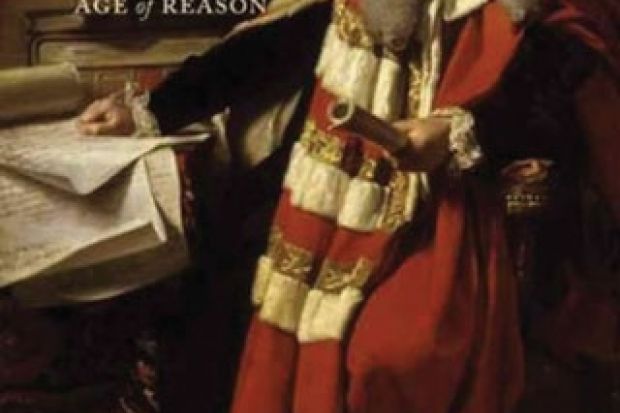William Murray, the first Lord Mansfield, “has been strangely ignored by biographers”, claims Norman Poser, who has responded with an extensively researched life of the 18th-century lawyer, judge and politician. Mansfield, whose work dominated his age, is seen today as the founder of modern commercial law, importing the international Law Merchant into the common law, and providing merchants, lawyers and judges with a settled system of principles and rules on which to rely.
Mansfield was famous for the quality of his legal reasoning and oratory, and a young Jeremy Bentham even confessed to walking up and down in front of Kenwood House, Mansfield’s country house, in the hope of catching a glimpse of his hero. Poser reveals Mansfield as an Enlightenment man, educated in the Classics and philosophy. He was a patron of Robert Adam and friend to Alexander Pope. Childless himself, he provided a home for two of his nieces and one great-niece, Dido, the illegitimate daughter of his nephew and an African slave. In light of his family connections, Mansfield’s important if inconclusive rulings on slavery – including Somerset’s case (1772), which allowed use of the writ of habeas corpus to free a slave, and the notorious Zong case (1783), an insurance claim for drowned slaves as lost property – make for fascinating reading. In an extensive review of Mansfield’s legal legacy in other common law jurisdictions, Poser finds him cited in a recent US Supreme Court recent ruling that habeas corpus is available to a prisoner in Guantanamo Bay detention camp.
Born in 1705, Mansfield was the fourth son of David Murray, the fifth Viscount Stormont, and his family was caught up in the political turmoil following the 1707 Act of Union. He went on to marry Lady Elizabeth Finch and became a wealthy member of the English ruling elite. In little more than a decade he made a meteoric rise to judicial office, and sat as Lord Chief Justice for 32 years. His patronage by the Duke of Newcastle led to a long political career in which he became a Member of Parliament and acted as the Whig ministry’s spokesman in the House of Commons, where he often clashed with William Pitt the Elder, and he was a trusted personal adviser to George II and George III. Poser suggests that Mansfield’s support for the latter king’s bellicose policies precipitated the American War of Independence.
Poser’s tendency to address himself more or less exclusively to his North American readers sometimes results in uncomfortable reading for others, and the extensive general background he provides is sometimes insufficiently historically nuanced. For example, his discussions of the validity of a marriage and illegitimacy does not mention the effects of the overlapping jurisdictions of church and common law.
Mansfield’s Scottish ancestry, and particularly his family’s adherence to the Stuart cause, Poser claims, continued to haunt him throughout his long career, raising questions about his loyalty to Hanoverian England. Indeed, Mansfield’s father and mother openly supported the claims of the Stuart pretender to the English throne (James Stuart, followed by his son, “Bonnie Prince Charlie”) and Mansfield’s older brother, sister and brother-in-law actually lived at the Stuart court in exile. Interestingly, Poser suggests that his vulnerability to accusations of Jacobite sympathies explains a disjuncture between Mansfield as a courageous judge, and Mansfield the politician, an always-loyal supporter of the government.
Lord Mansfield: Justice in the Age of Reason
By Norman S. Poser
McGill-Queen’s University Press, 560pp, £25.99
ISBN 9780773541832
Published 1 May 2014
Register to continue
Why register?
- Registration is free and only takes a moment
- Once registered, you can read 3 articles a month
- Sign up for our newsletter
Subscribe
Or subscribe for unlimited access to:
- Unlimited access to news, views, insights & reviews
- Digital editions
- Digital access to THE’s university and college rankings analysis
Already registered or a current subscriber? Login





